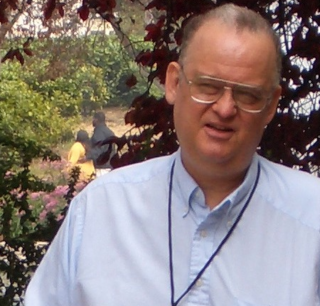A Quote by Oliver Joseph Lodge
Of mediumship there are many grades, one of the simplest forms being the capacity to receive an impression or automatic writing, under peaceful conditions, in an ordinary state; but the whole subject is too large to be treated here.
Related Quotes
[T]he theory of output as a whole, which is what the following book purports to provide, is much more easily adapted to the conditions of a totalitarian state, than is the theory of production and distribution of a given output produced under the conditions of free competition and a large measure of laissez-faire.
Most persons think that a state in order to be happy ought to be large; but even if they are right, they have no idea of what is a large and what a small state.... To the size of states there is a limit, as there is to other things, plants, animals, implements; for none of these retain their natural power when they are too large or too small, but they either wholly lose their nature, or are spoiled.
Many writers claim that nearly all crime is caused by economic conditions, or in other words that poverty is practically the whole cause of crime. Endless statistics have been gathered on this subject which seem to show conclusively that property crimes are largely the result of the unequal distribution of wealth. But crime of any class cannot be safely ascribed to a single cause. Life is too complex, heredity is too variant and imperfect, too many separate things contribute to human behavior, to make it possible to trace all actions to a single cause.
Can the state, which represents the whole of society and has the duty of protecting society, fulfill that duty by lowering itself to the level of the murderer, and treating him as he treated others? The forfeiture of life is too absolute, too irreversible, for one human being to inflict it on another, even when backed by legal process.
[Ho Chi Minh] was always conscious that conditions in China and Vietnam were not always the same. He "kowtowed" to the Chinese - as he had to the Soviet Union - in order to receive their assistance, but he quietly worked to limit those forms of influence of which he did not approve (such as the harsh forms of land reform and the Great Leap Forward). Unfortunately, he was not always successful in fending off those forms of external advice that he didn't agree with.
To offer no resistance to life is to be in a state of grace, ease, and lightness. This state is then no longer dependent upon things being in a certain way, good or bad. It seems almost paradoxical, yet when your inner dependency on form is gone, the general conditions of your life, the outer forms, tend to improve greatly.
I am opposed to all forms of control; I am for an absolute laissez faire, free, unregulated economy. I am for the separation of the state and economics, just as we had separation of state and church, which led to peaceful coexistence among different religions...so the same applies to economics. If you separate the government from economics, if you do not regulate production and trade, you will have peaceful cooperation, and harmony and justice among men.
We know that we are happy when our mind is peaceful, and unhappy when it is not. It is therefore clear that our happiness depends upon our having a peaceful mind and not on good external conditions. Even if our external conditions are poor, if we maintain a peaceful mind all the time we shall always be happy.
The automatic Kalashnikov is a tool, an implement designed for ordinary men, without much training or undue complications, to kill other men, and to be used in the conditions in which wars are often fought. But it's only a tool, and while its ready availability in many unstable lands can be seen as kindling violence, this is not simply because of the weapon's qualities themselves. It is because of the quantities of the weapons that have been made.



































